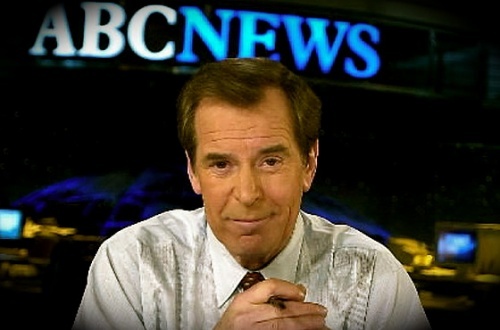
Before his death, Peter Jennings was apparently completing a Report on the betrayal of Srebrenica. Sudden discovery of his cancer and premature and unfortunate death put the broadcast of his project on hold. What happened with his report, we're not certain. However, Peter Jennings’ had completed a critical 3 part series in spring of 1995 which was reviewed by the New York Times. Straightforward conclusion of Jennings Reportage - "UN was misused and the most powerful nations in the security system did not believe that the destruction of Bosnia is threat to them." Below is the full review from the New York Times, by Walter Goodman – April 24, 1995, and MORE to COME.
Oh Yes, history does have a way of regurgitating itself especially as concerns cowardice and deceit of people like Sir Michael Rose as well as Milosevic, Mladic and Karadzic. It also evidences heroism, honor and integrity possible. That is why as Syria withers under a genocidal regime, we should also recall the positive lessons of Peter Jennings and Diego Arria as well as the citizen-soldiers who actually defensed Bosnia & Herzegovina – little rewritten point of history: NATO was late, they we’re welcome and helped but way too late after the Bosnians/Herzegovinians would not allow themselves to be wiped away.
By Ambassador Muhamed Sacirbey – Follow @MuhamedSacirbey
Facebook = Become a Fan at “Diplomatically Incorrect”
Twitter – Follow us at DiplomaticallyX
Link -
www.nytimes.com/1995/04/24/arts/television-review-jennings-takes-on-un-over-abuses-in-bosnia.html
TELEVISION REVIEW; Jennings Takes On U.N. Over Abuses in Bosnia
By WALTER GOODMAN
Published: April 24, 1995
In his third and strongest hourlong report from Bosnia, Peter Jennings takes aim at Lieut. Gen. Sir Michael Rose, the former commander of the United Nations forces in that battered land. The specific charge of "The Peacekeepers: How the United Nations Failed in Bosnia" is that having declared the towns of Gorazde and Bihac to be safe havens, the United Nations, represented in the field by General Rose, allowed the Serbian aggressors to get away with murder.
General Rose, in the critical view of relief workers and military officers, played down the Serbian attacks and responded feebly or not at all despite his ability to direct NATO air power against the aggressors. General Rose's explanation, under the tough questioning of Mr. Jennings, that the United Nations and NATO are on a peacekeeping mission not a war mission, seems weak and evasive, especially when his words are accompanied by scenes of besieged civilians under incessant attack.
Don't look to "The Peacekeepers" for evenhanded analysis. It is as one-sided as the war against the Bosnians. It's in the worthy tradition of the journalistic expose, on a far more serious level than the usual television news magazine offering.
The program is devastating when it details repeated instances of General Rose's failure to react to Serbian provocations, even when they took the form of shelling a hospital or killing United Nations soldiers. But it also gets into more complicated matters as it explains how the United Nations' relief efforts, which have given food and medicine to tens of thousands of people, have turned the relief workers into hostages to the Serbians.
Mr. Jennings takes us up to the water's edge of American policy, but barely wades in. He uses Senator Bob Dole of Kansas, the majority leader, to express American outrage and demand that something be done. But Lord Owen, who has been much criticized for his unsuccessful attempts to find peace in Bosnia as a negotiator for the European Community, reminds us that the United States can talk tough because it has no troops at risk on the ground there. Tonight even he seems resigned to a United Nations withdrawal.

